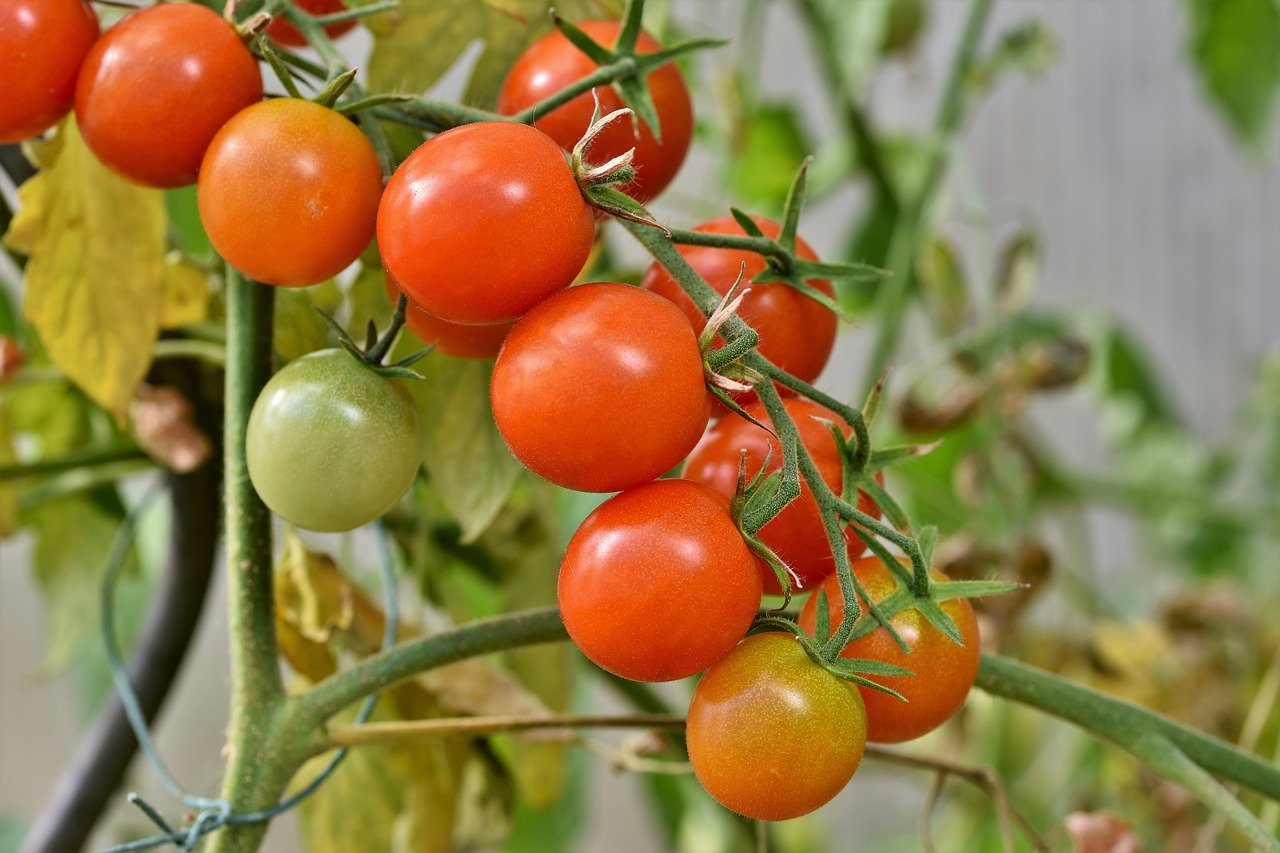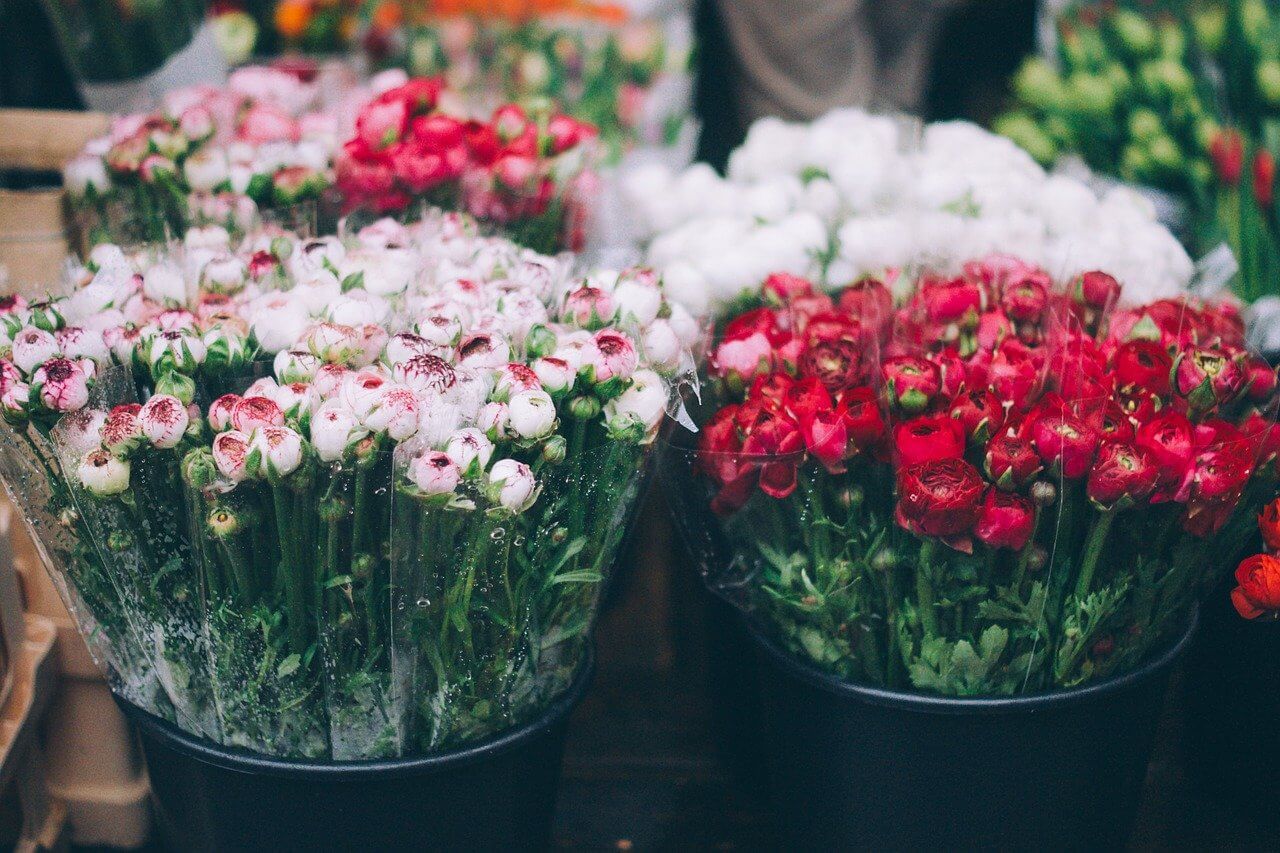Because farmers’ markets take place in large and small towns across the United States and around the world, it’s not really possible to make an exact list of the best plants to sell at farmers’ markets. The best-sellers (and usually the most profit making plants) will vary greatly depending upon the climate, the time of year and local demand.
In this article, will review some of the factors you should keep in mind when choosing plants that will sell well at your local farmers’ market. Read on to learn more on best selling plants at farmers markets.
What You'll Learn Today
Standard Veggie Garden Plants Always Do Well

Generally speaking, it’s a good idea to focus on selling seedlings that will do well in the area where you are selling them. Popular garden vegetables include:
- Cucumbers
- Tomatoes
- Zucchini
- Lettuces
- Peppers
- Spinach
- Squash
- Onions
- Kale
- Peas
- Herbs
All of these are pretty much tried and true, vegetable garden standards.
You can find varieties that will do well in almost any climate. Look for the ones that will do well in yours.
When you have established clientele, you’ll be able to identify the serious gardeners who will do well with more complicated vegetable garden plants, such as artichokes, kohlrabi, eggplant and the like. These folk may become valued private customers who will contact you when seeking specialty plants.
Flowers for cutting, butterfly and pollinator gardens also tend to do well. Popular flower garden plants include:
- Nasturtiums
- Sweet Peas
- Coreopsis
- Echinacea
- Cosmos
- Zinnias
- Daisies
- Asters
These flower garden standbys are easy to grow and come in an array of colors, so you can present a nice showing at your farmers’ market stand without a great deal of variety.
All of these do well with pretty much the same casual care, so your customers are very likely to be happy with the results even if they are beginning gardeners.
Invest In Your Customers’ Success
Be sure to only sell plants in season. Sell them at the right time of year to give your customer the best chance of succeeding.
If you sell seedlings too early, inexperienced gardeners may plant them out into the garden only to have them killed by a late frost. This sort of disappointing event can lose you customers.
No matter what types of plants you offer, be sure to also offer useful, accurate advice to help your customers succeed. This will ensure that they return to you time and again.
You could print out flyers of the information, or better yet post it on your social media pages or your website and give your customers the opportunity to opt in for your newsletters.
Farmers’ Market Offerings For The Adventurous Gardener

1. Heirloom
Many people are seeking an authentic, old-fashioned gardening experience. These will be your customers for specialty plants such as heirloom veggies.
Heirloom plants can be bought through gardening catalogs, but your best bet for authentic heirlooms is to seek out established local gardeners who have saved their own seeds and cultivated their plants carefully for decades.
Join your local gardening society to find the best local sources of heirloom seeds, which are sure to do well in your area.
2. Herbs
People have a great interest in cooking with fresh, natural herbs. Kitchen windowsill herb gardens are very popular and usually make a successful offering at the farmers’ market. Additionally, individual herbs in small pots tend to sell well.
Herbs are easy to grow, so your customers are very likely to have a great deal of success with them which will spur them to return to you when they’re ready for more plants.
Some of the most popular and easiest to grow herbs include:
- Rosemary
- Lavender
- Oregano
- Cilantro
- Thyme
- Stevia
- Basil
3. Container Plants
Many farmers’ market customers are apartment dwellers and have very limited space for plants. Nonetheless, they enjoy keeping them in container gardens on their balconies or patios. Herbs do well as container plants, and all sorts of dwarf type plants sell very well at the farmers’ market.
You can sell these in individual cells or pots and/or create attractive container and hanging basket gardens for your customers to simply take home and enjoy.
Where Do You Get Plants To Sell At The Farmers‘ Market?
Of course, you can always start seed on your own. You could also purchase very small seedlings from a wholesale nursery, repot them and nurture them for a while to present your customers with larger, more established plants.
Even though you can purchase starts from a nursery, keep in mind there is some advantage to producing your own plants as naturally and organically as possible.
Being certified organic is a complicated process, and you may not be able to attain it, but even if you’re not able to become a certified organic grower, you can always increase the value of the plants you offer by growing them as organically as possible.
When you grow your plants using your own, non-chemical compost and potting soil mix in the most natural way possible (without added heat or artificial lighting) you produce a stronger, healthier, tougher plant.
This means that you will be able to display the plant longer and have it still looking good. Additionally, your customer is more likely to enjoy success with a strong, healthy seedling that has been produced as close to organically as possible.
Marketing May Be The Biggest Advantage Of Selling Plants At The Farmers’ Market
You may find that you don’t actually make a great deal of money selling plants at the farmers’ market. Nonetheless, it can be a good investment of your time. Hauling plants back and forth between your home and the farmers’ market can be time-consuming.
Very often, people may stop by your stand and talk with you at great length and walk away with only one or two plants or none at all.
It’s very important that you make the most of this investment of time by making sure that these potential customers have all of your contact information and have signed up to receive your email newsletter. There may be other things from your farm (e.g. livestock, etc.) that you may try to sell them later.
Be friendly and welcoming and encourage them to come back and see you. When you’re selling plants (or anything else), it can take a while to build relationships and cultivate return customers, but once you do you‘ll see a good return on your investment.
Potatoes and tomatoes are must-buy veggies whenever we go to the local farmers market.